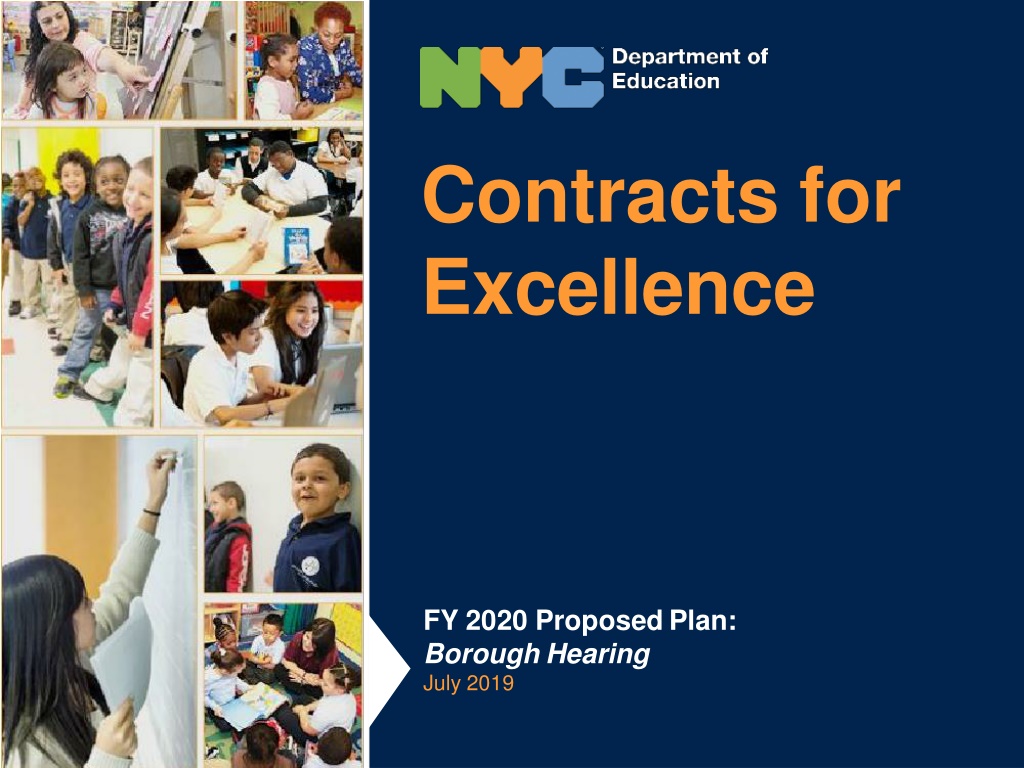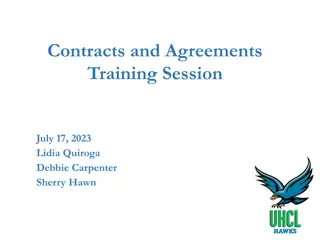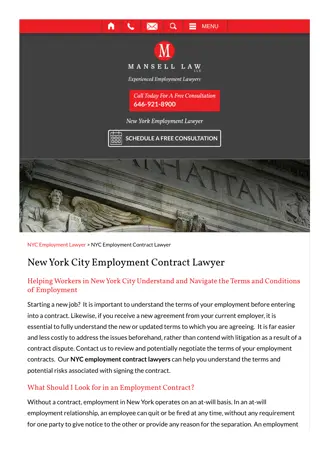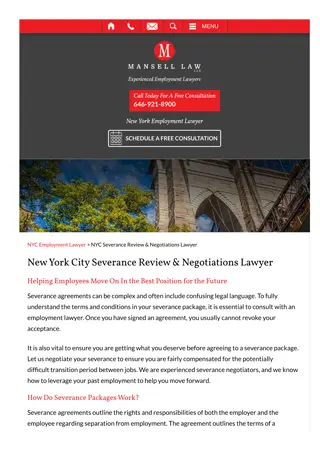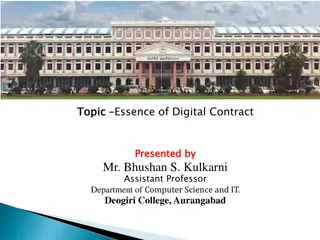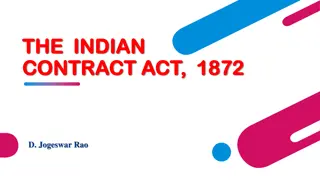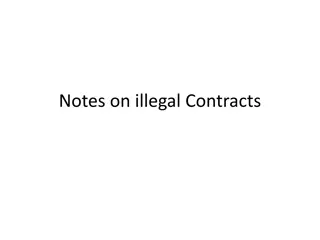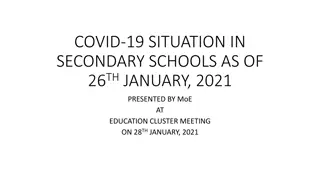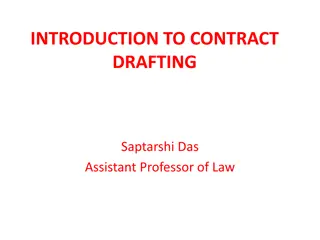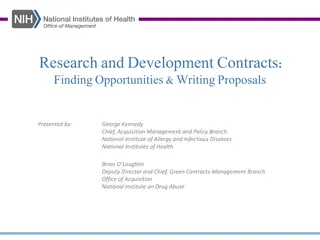Understanding Contracts for Excellence in NYC Public Schools
Contracts for Excellence (C4E) is a program in NYC public schools that allocates funding to support specific initiatives like class size reduction, teacher quality, and programs for English Language Learners. C4E aims to improve student achievement, especially in overcrowded or struggling schools, by requiring funds to be spent on designated program areas outlined in legislation. The program was established in response to a court decision emphasizing every child's right to a sound basic education.
Download Presentation

Please find below an Image/Link to download the presentation.
The content on the website is provided AS IS for your information and personal use only. It may not be sold, licensed, or shared on other websites without obtaining consent from the author. Download presentation by click this link. If you encounter any issues during the download, it is possible that the publisher has removed the file from their server.
E N D
Presentation Transcript
Contracts for Excellence FY 2020 ProposedPlan: FY 2017 Proposed Plan July 2016 Borough Hearing July 2019
Contracts for Excellence (C4E) Overview NYCDOE receives Foundation Aid from the State, making up a portion of the overall budget. A November 2006 Court of Appeals decision stated that every public school child in the State has a right to a "sound basic education" and that the State has the responsibility to increase funding for New York City's public schools. As a result of this court decision, the New York State Legislature passed legislation requiring that, for each school district that has at least one school that requires academic progress or is in need of improvement, the school district would receive an increase in foundation aid and a portion of that foundation aid would be subject to the categorical spending requirements of the Contract for Excellence. Funds were first received in the 2007-2008 school year. These funds, under State law, must be distributed to schools that meet certain requirements and must be spent by those schools in designated program areas, as set forth in the Contract for Excellence legislation. 2
Contracts for Excellence (C4E) Requirements 1. Funds must support specific program initiatives: Class Size Reduction opening additional class sections, creating more classrooms or school buildings, assigning more than one teacher to a classroom, and other approved methods, to facilitate student attainment of State learning standards, with priority given to pre-K through grade 12 students in overcrowded schools, particularly those requiring academic progress, schools in need of improvement, schools in corrective action, and schools in restructuring status Time on Task programs focusing on students who may require additional or increased individualized attention in order to raiseachievement Teacher & Principal Quality Initiatives programs supporting development & retention of high quality teachers and principals for raising achievement in strugglingschools Middle & High School Restructuring instructional and structural changes in middle and high schools to support class size reduction and raise achievement in strugglingschools Full-Day Pre-Kindergarten Programs Model Programs for English Language Learners programs aimed at supporting schools in adopting best practices for raising achievement among English Language Learners 3
Contracts for Excellence Requirements (contd) 2. Funds should be used towards meeting schools overall educational goals as outlined in the School Comprehensive Educational Plan (SCEP) and must be allocated predominantly to students with the greatest educational needs, such as English Language Learners Students in Poverty Students with Disabilities Students with Low Academic Achievement or At Risk of Not Graduating 3. Funds must supplement, not supplant, local funding or other grants: Expenditures made using C4E funds must supplement, not supplant funding provided by the school district; however, SED has provided guidance explaining that certain expenditures may be paid for with C4E funds even though these programs or expenditures were originally or have been typically paid for by the district or by other grants. For example, if a program had been funded by a different grant, but that grant funding has been cut, then C4E funds can be used to fund theprogram. For new or expansion of existing programs only 4
Contracts for Excellence 2018-2019 The New York State 2019-2020 Budget continues Contract for Excellence requirements for New York and maintains the same funding level for the Contracts for Excellence allocation as was provided in the 2018-2019 schoolyear. In FY 2020, the State has not given DOE any additional C4E funding above the amount it provided last year. NYCDOE is in maintenance of effort status, meaning that C4E funds will be used to maintain programs that were approved in prioryears. The total C4E amount for FY 2020 is $531 million, out of which $183 million is embedded in Fair Student Funding, which is the primary funding source for schools. Fair Student Funding is allocated based on student educational attributes, including ELL, Individualized Education Program (IEP), academic proficiency, and poverty status. Details for Fair Student Funding can be found by visiting: www.nycenet.edu/offices/finance_schools/budget/DSBPO/allocationmemo/fy19_20/fy20_docs/fy2020_sam001_1b.htm The remaining $348 million is distributed to schools through school allocation memos, also known as SAMs . This presentation explains how the $348 million isallocated. 5
State Funding Breakdown STATE FUNDS FY20 $531 million $348 M RESTRICTED (funds must beused according to NYSED C4E guidelines) $183 M UNRESTRICTED (funds not subject to C4E restrictions, may be used asneeded) $183 million $348 million Distributed to schoolsthat were underfunded at the time of conversion to Fair Student Funding in2008 Funds subject to C4E $30 million $318 million Maintenance of Effort for existing priorities Restricted C4Efunds 6
NYCs 2019-20 Preliminary C4E Plan How We Propose to Allocate the $348 Million Restricted Funds Maintenance of Effort $30million 9% Targeted Allocations $104 million 30% Discretionary Allocations $214 million 61% The FY 2020 Contracts for Excellence allocations described in this plan are preliminary. Funds are subject to a public engagement process and approval by the State Education Department. Please note that distribution of all funds is subject to allocation guidelines as specified in Stateregulations. 7
Discretionary Allocations to Schools $214 million in restricted Contracts for Excellence fundswere released to 1,400+ schools in May2019. Amount 61% of total restricted Contractfunds. Continuity of service for existing C4Eprograms. However, if a school cannot maintain effort because ofsignificant changes in its student population or its overall instructional strategy, it could choose to reallocate funds to a different allowable program area. Use 8
Targeted Allocations to Schools About $104 million of C4E funds were targeted for specific programs. Schools receiving allocations were chosen basedon a) overall student need and b) capacity to carry out thespecific programs. Amount 30% of total restricted Contractfunds Funds will be allocated directly to schools for specific programs, including but not limited to: $90 million Integrated Co Teaching Classrooms(ICT) (Formerly Collaborative Team Teaching(CTT)) Use $9.1 million Full-DayPre-K $4.7 million Autism Spectrum Disorder (ASD)Classrooms Maintenance of Effort $30 million Amount 9% of total restricted Contractfunds The Department proposes to spend these funds to maintain summer programs impacting the students with the lowest academic achievement in the City. Use 9
How C4E Dollars Are Spent Expenditures for the $348 Million RestrictedFunds Other than PersonnelServices $9.4 million 3% Pupil Personnel Service Providers $17 million 5% Teachers Pupil Personnel Service Providers Other than Personnel Services Teachers $322 million 92% Assistant Principals & Principals (<0.1% $83,143) 10
Class Size as an Allowable Activity During the 2019 2020 School Year For the 2019-2020 school year, the DOE will continue its efforts to reduce class size, one of the allowable activities for which Contracts for Excellence funds may be spent pursuant to the C4E legislation, in the following ways: Last year, NYCDOE focused on class size reduction in the Renewal School Program. These schools align well with the legal requirements of Contracts for Excellence. For the 2019-2020 school year, NYCDOE will continue to focus on the lowest performing schools in its class size reduction efforts. The New York State Commissioner of Education has determined that the five-year Class Size Plan created in 2007, when the C4E legislation was issued, is no longer in effect. 11
Public Comment We will take public feedback into account in the coming months as we continue to develop a citywide Contracts for Excellence plan. The deadline for submitting public comments will be August 31, 2019. The public may comment on any aspect of the plan, including: How schools are planning to spend their discretionary funds within the six allowable program areas How the DOE is allocating targeted Contract funds to schools The public comment process Educators, parents, and all other members of the New York City community with feedback should e-mail us at ContractsForExcellence@schools.nyc.gov 12
